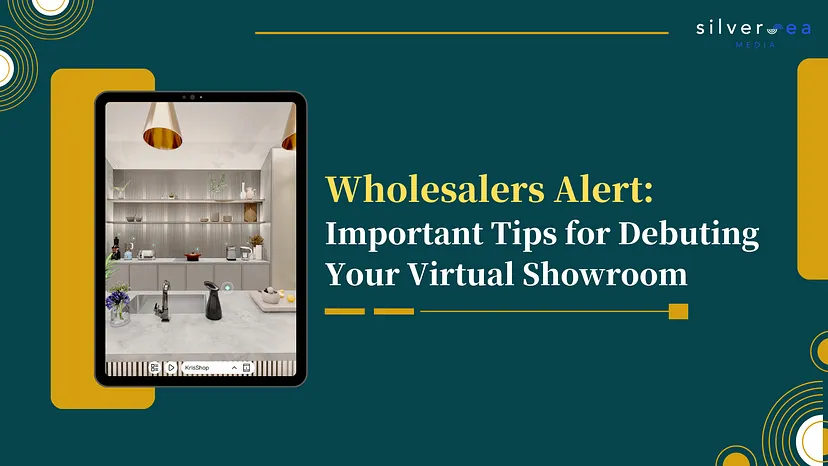Now that we’ve seen how virtual showrooms boost wholesale engagement, it’s time to discuss how to make it happen. There are a few things to remember to ensure your virtual showroom rocks and goes above and beyond what your retail partners expect. Let’s dive in and explore how to make it a game-changer for your sales and marketing strategy.
1. Technology and Platform Choice
The key to nailing your virtual showroom setup is picking the right tech and platform. You want something that’s robust and reliable but also aligns with the specific needs of your business and your retail partners. Look for options with:
- A User-Friendly Interface: Ensures you and your retail partners can navigate the showroom effortlessly.
- Customization Options: Make sure you are able to tailor the look and vibe to match your brand’s personality.
- Built to Scale: Your showroom should be able to grow with you, handling more products and features as you expand.
- Integration Capabilities: It should play nicely with your existing tools, such as CRM and inventory systems, for a smooth workflow.
- Interactive Features: Enhance your virtual showroom with interactive elements like gamification, allowing users to explore products while enabling upselling or cross-selling. Reward customers as they reach milestones for added engagement and satisfaction!
- Real-Time Chats: Engage with customers via audio, video, or text chat, enabling them to ask questions while your sales representatives provide personalized guidance through product selection.

2. Content Creation and Management
- Top-Notch 3D/Augmented Reality (AR) Visualisation: High-quality, detailed product information and visuals are essential to engaging and converting visitors. Include specifications, features, and other information to help retail partners make informed decisions.
- Multimedia Content: Expand beyond static images; leverage audio and video storytelling to enrich the customer’s product experience and convey your message more dynamically.
- Stay Fresh with Regular Updates: Keep your showroom dynamic by adding new products, deals, and promotions regularly.
- Reliable Content Management System (CMS): Consider using a reliable CMS that makes updating and managing your showroom a breeze, minus the tech headaches.

3. Promotion and Marketing
You’ve got your virtual showroom up and running, but now what? Let’s spread the word!
- Email Marketing: Craft targeted campaigns for your existing customers and prospects, inviting them to check out your new virtual showroom.
- Social Media: Leverage platforms like LinkedIn, Facebook, and Instagram to share previews, how-to guides, and customer testimonials about your virtual showroom.
- SEO and Content Marketing: Ensure your website and blog content are keyword-optimized to boost the visibility of your virtual showroom and attract more attention.
- B2B Trade Shows and Events: Take the chance to showcase your virtual showroom to a broader audience at industry events.

4. Tracking Success and Gathering Feedback
Keep your virtual showroom at its best by tracking its performance and gathering user feedback. Utilize analytics to delve into visitor behavior, engagement levels, and conversion metrics. Remember to contact your retail partners for direct input on what works, what doesn’t, and what could be improved.
Ready to transform your B2B sales strategy with a virtual showroom? Download our e-brochure to learn how Silversea Media can help you achieve that goal.










